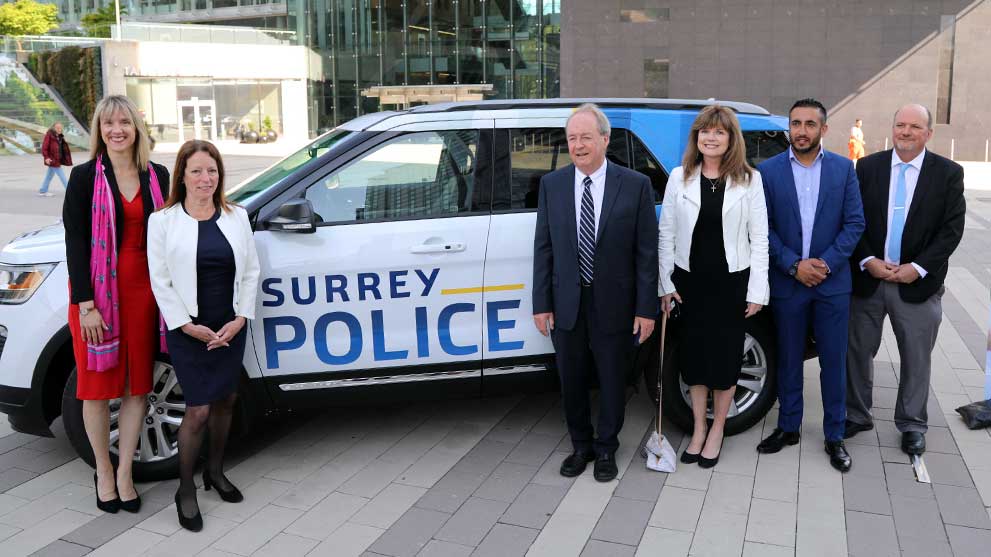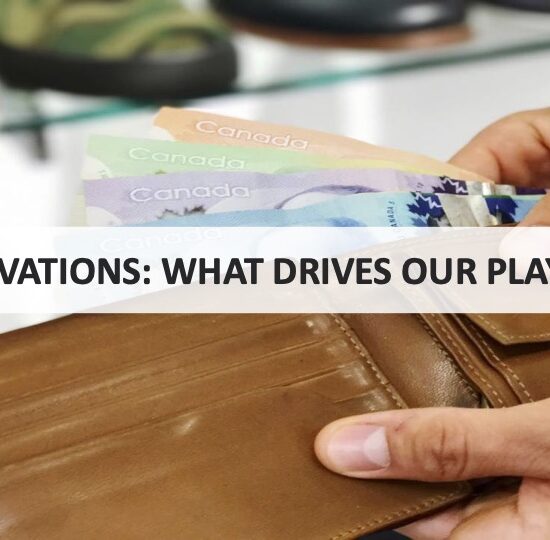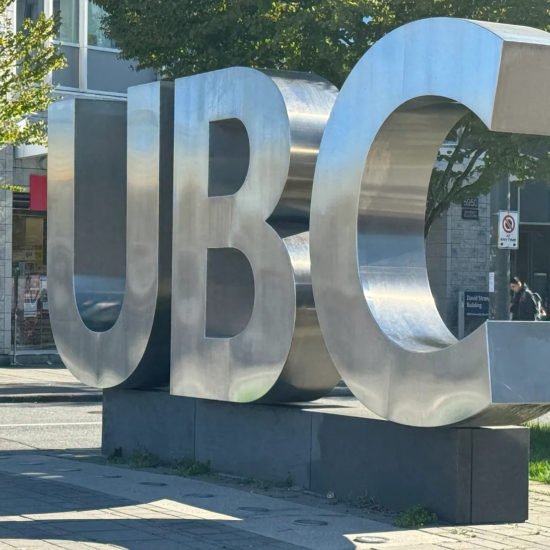
Bob Mackin
An NDP government-commissioned survey about Surrey found a high plurality of respondents disagreed with replacing the RCMP with the Surrey Police Service (SPS).
“Just over two-in-five Surrey residents (42%) agree with the transition, while just under half (46%) disagree,” said the May 2023 survey by Research Co., obtained via freedom of information. “The transition is popular among residents aged 18-to-34 (65%) and aged 35-to-49 (50%) but drops among those aged 50-to-64 (22%) and those aged 65-plus (29%).”

(RCMP)
Ten percent of the 966 Surrey adults who responded to the May 24-31, 2023 online and telephone survey were undecided. The margin of error was plus/minus 3.1%, 19 times out of 20.
“Respondents of Indian descent are more likely to agree with the transition (63%) than those of European heritage (35%),” said the Research Co. report. “On a regional basis, agreement with the transition is highest in Fleetwood (53%), followed by Whalley/Centre (49%), South Surrey (40%), Newton (39%), Guildford (38%) and Cloverdale (35%).”
The poll came less than a month after the province’s director of policing services recommended Surrey continue with the switch to a municipal force, but set various conditions if it wanted to keep the RCMP. Almost two-in-five (39%) said they had changed their minds in the past month to become more likely to side with the RCMP and just over a third (34%) said their opinion was unchanged. Just over one-in-five (22%) changed their preference to the SPS.
Almost two-thirds (64%), however, expressed fatigue, agreeing that the police transition issue is a mess and needs to be resolved one way or another. A majority (55%) said that the public should ultimately make the final choice, because “it is only up to Surrey residents to decide.”
“More than three-in-five Surrey residents (61%) think a referendum is a good idea, while 18% believe it is a bad idea.”
The top reason to keep the RCMP, chosen by three-in-four respondents, was the RCMP’s role as a Canadian institution and symbol of national identity. Agreement was lower, but still in majority territory, for all other reasons tested by Research Co.

May 2019 photo of Patton (left), Coun. Linda Annis, McCallum, Guerra, Nagra and Elford. (Annis is a member of Surrey First)
Those included: Surrey Mayor Brenda Locke’s pro-RCMP promise to voters (67%), the RCMP’s job of keeping Surrey safe from crime (66%), policing is a decision for Surrey residents, not provincial politicians (65%), the high cost of switching (62%) and the opinion that the SPS is a failed experiment created in a flawed and secretive process (61%).
On the other side of the ledger, smaller majorities agreed with three reasons to continue the switch: the hiring of hundreds of staff and expenditure of millions of dollars on SPS (61%), local recruitment for the new force (52%) and the understaffed RCMP’s 1,500 province-wide vacancies (51%).
Forty-six percent of respondents agreed with the transition to the municipal force due to the province’s $150 million, five-year subsidy offer and the ability to avoid $72 million in severance costs if the SPS had to be shut down.
In July 2023, Solicitor General Mike Farnworth said Surrey did not meet the director of policing services’ conditions and ordered the SPS to replace the RCMP. He offered $150 million to Surrey city hall over five years to facilitate the transition.
Locke and her Surrey Connect majority stuck to their 2022 campaign promise to keep the RCMP, so the NDP majority amended the Police Act in October to accelerate the SPS replacement of the RCMP.
City of Surrey applied to B.C. Supreme Court for a judicial review, aimed at overturning the province’s decision, because it estimated Surrey taxpayers would shoulder an extra $464 million over the next 10 years. Surrey rejected the province’s $110 million additional offer to settle out of court, so hearings will go ahead as scheduled beginning April 29. RCMP Commissioner Mike Duheme wrote April 12 to Farnworth, to say that despite the province’s move to overrule Surrey and mandate the transition, there is no authority for RCMP members to work under the command of municipal officers.
Meanwhile, the poll also found that 55% of Surrey residents felt the province is on the right track and 53% felt the government is on the right track.
“The issues that get the most mentions from Surrey residents are cost of living/affordability/inflation (68%), health care (47%), housing/price of real estate (39%), crime/public safety (29%) and homelessness (24%).”
Ninety percent were very or somewhat concerned about crime in Surrey.
A previous Research Co. survey of 704 adults in January 2023 found cost of living and affordability was the top issue for 43% in Surrey, followed by crime and public safety (20%) and housing prices and real estate (15%). At the time, relatively few respondents were concerned about healthcare (8%), gas prices (4%) and addictions and the opioid crisis (3%).
The ruling NDP holds seven of the nine Surrey seats. A 10th riding will be added in October’s provincial election.
Support theBreaker.news for as low as $2 a month on Patreon. Find out how. Click here.










